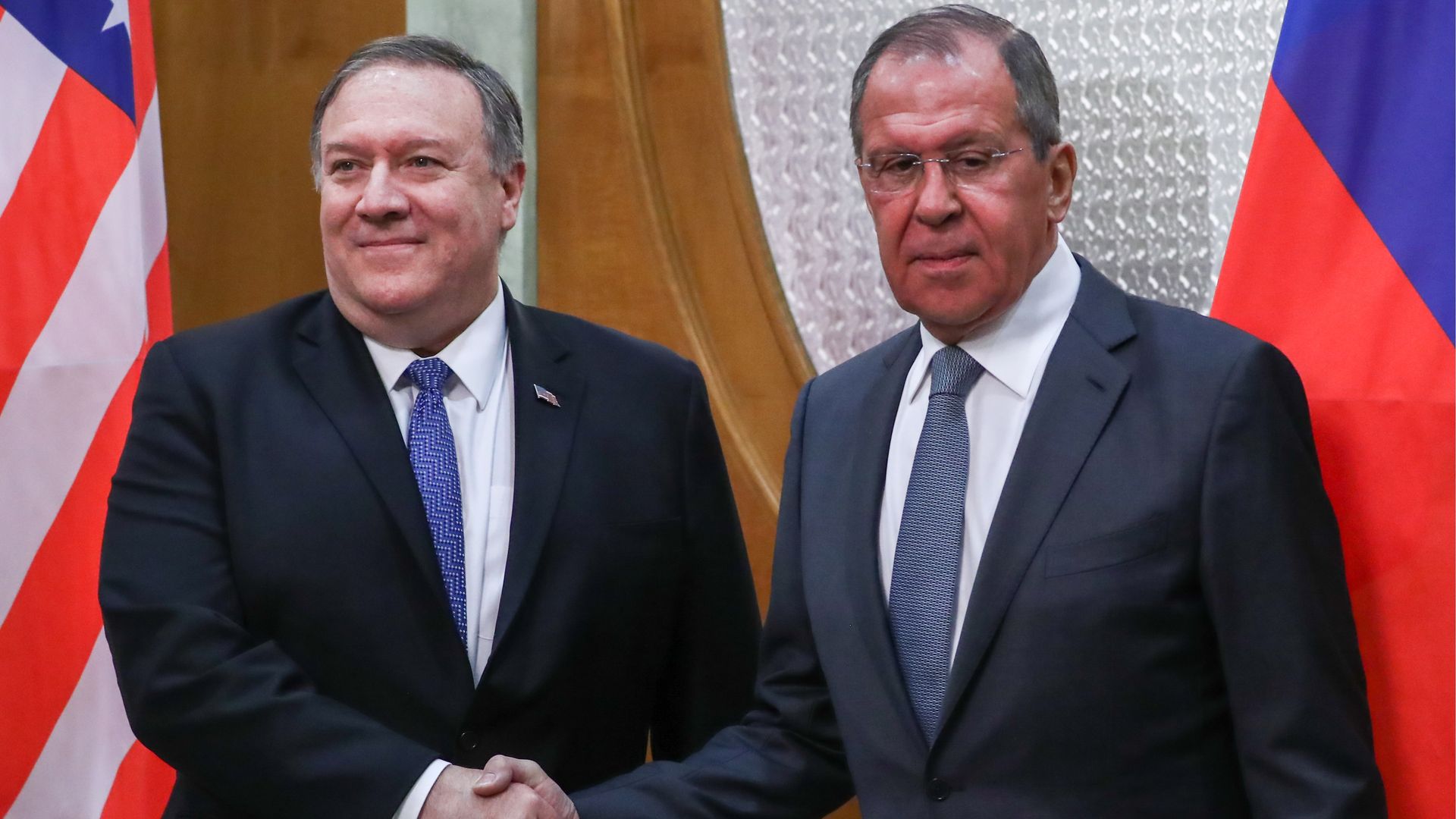Amid U.S.–Russia standoffs, Putin looks for an opening in Sochi
Add Axios as your preferred source to
see more of our stories on Google.

Secretary of State Mike Pompeo and Russian Foreign Minister Sergey Lavrov in Sochi, Russia, on May 14. Photo: Anton Novoderezhkin/TASS via Getty Images
Secretary of State Mike Pompeo meets in Sochi on Tuesday with his Russian counterpart Sergey Lavrov and President Vladimir Putin to discuss a long list of issues on which the U.S. and Russia are at complete odds with each other.
The big picture: The agenda for the talks — the first high-level meeting with Russian officials since last summer's widely criticized Helsinki Summit — includes arms control, Venezuela, Ukraine, Syria and Iran, according to the State Department. While it's unlikely the needle will move on any of these sources of longstanding disagreement, Sochi may help prepare for future summits.
Context: The Sochi meetings come amid a series of events that send mixed messages about U.S. intentions.
- On May 3, President Trump had a 90-minute call with Putin, ostensibly to discuss the their countries' standoff over the situation in Venezuela, where Russia has doubled down on Nicolás Maduro and the U.S. has recognized Juan Guaidó. Contrary to previous statements by Pompeo, Trump told reporters afterward that Russia "is not looking at all to get involved in Venezuela."
- On May 7, Pompeo canceled a planned meeting with German Chancellor Angela Merkel just hours before he was due to arrive in Berlin. Shortly after, the U.S. announced Pompeo's visit to Russia — sending a cold message to European allies at a time when the transatlantic relationship is already fragile.
- Pompeo's visit this week may also include planning for a Trump-Putin meeting during the G20 summit in Japan on June 28, where the administration would seek to avoid a repeat of the Helsinki Summit.
Between the lines: It would not be unusual for the U.S. secretary of state to meet with his Russian counterpart ahead of a major summit or to pursue negotiations on a specific issue. But Putin's attendance may signal an attempt to leverage the recent call with Trump — after which Trump took the Kremlin's line on Venezuela — to get concessions on U.S. support for Guaidó.
- Meanwhile, it's doubtful Pompeo will get Russia to scale back support for Iran, which is likely the Trump administration’s top priority.
The bottom line: Given each party's contradictory aims, the best outcome of the Sochi meeting may be no outcome at all.
Alina Polyakova is the David M. Rubenstein Fellow for Foreign Policy at the Brookings Institution.
